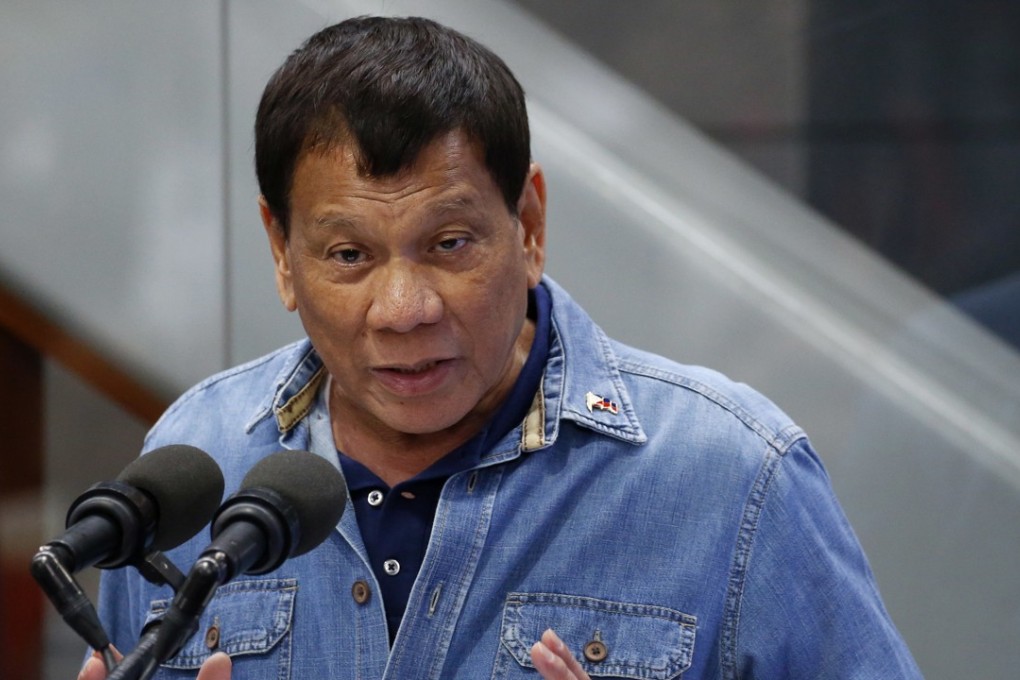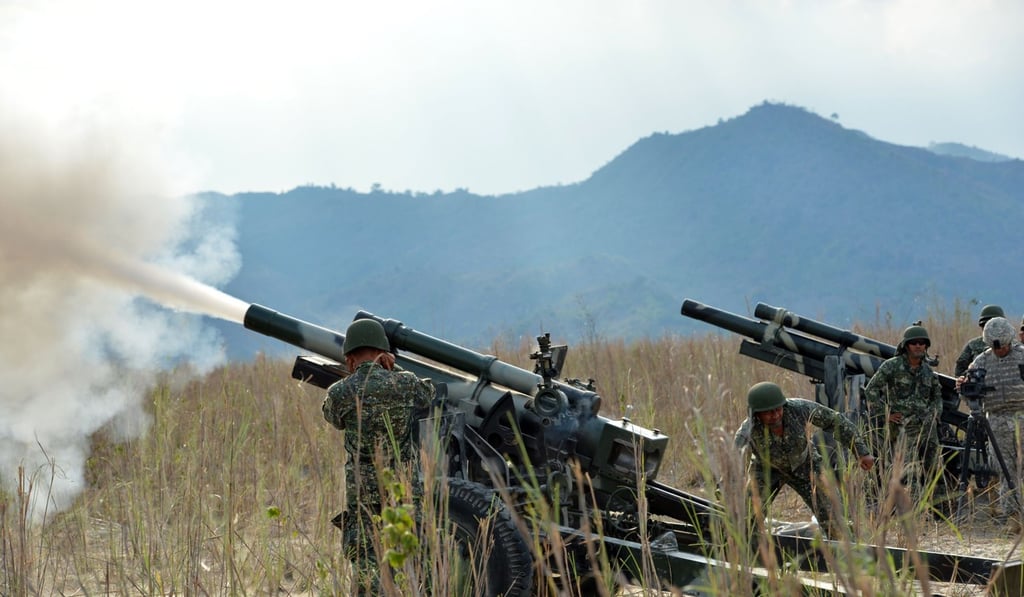Rodrigo Duterte wants to create ‘balance’ by sending troops to China for training
Philippine president’s counterterrorism proposal comes amid concern over growing risk of ‘miscalculation’ and conflict in South China Sea

Philippine President Rodrigo Duterte said he wants to send troops to China for training to combat terrorism, despite worries resurfacing over Beijing’s build-up in the contested South China Sea.
Duterte said there was a need to “balance” the training of Filipino soldiers, who have a strong bond with the US military, The Philippine Star reported.
“Most of the Filipino soldiers … would immediately choose America. They have forged such a bond,” Duterte was quoted as saying on Monday during an event marking the 20th anniversary of the Chinese-Filipino Business Club in Manila.
“My suggestion is the next batch should go directly to China ... so there would be a balance,” he said. “I’m sure there is an academy there to train good professional Chinese soldiers. Maybe China can accommodate them also and let them ... not really fight the Americans, but terrorism.”

The proposal was met with optimism by Chinese military experts, who said it would help Duterte’s push to rebalance ties between the US and China, as well as consolidate his control over the military.